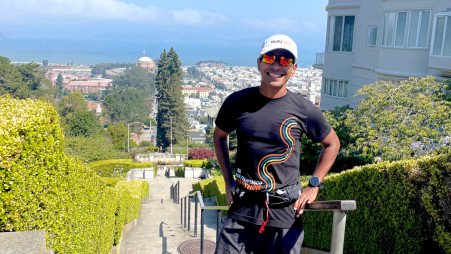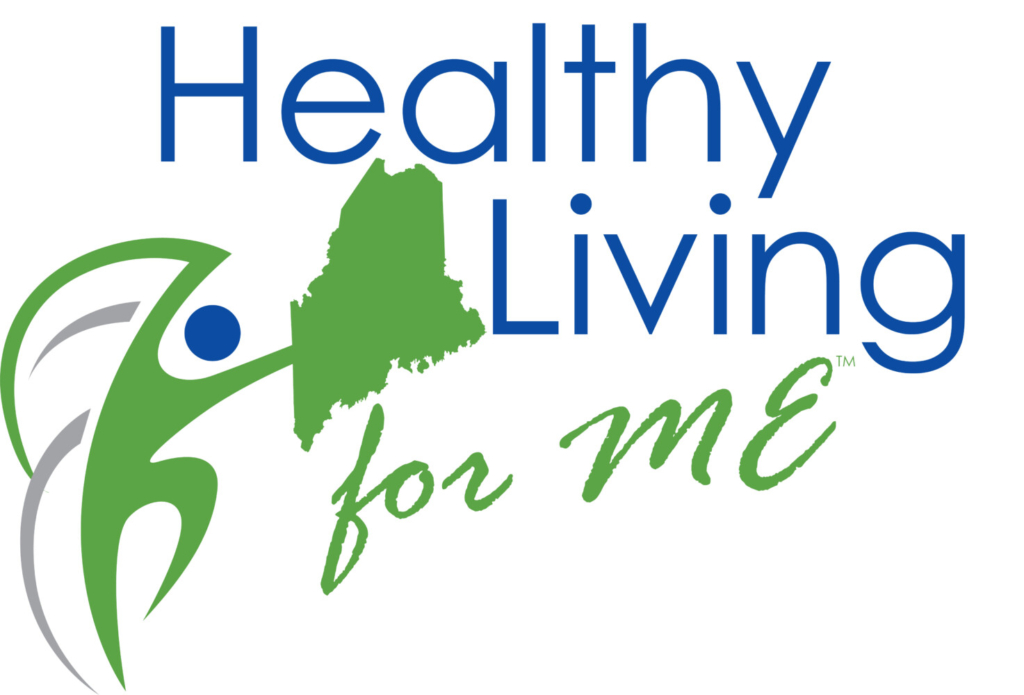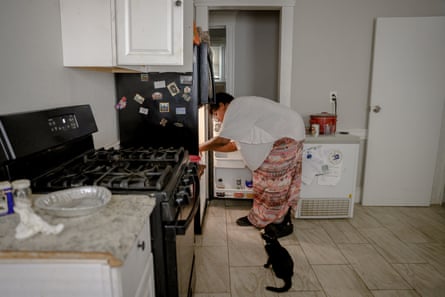
How healthy living helped Ejaj Ahmad build BYLC
The founder and president of Bangladesh’s first leadership institute approaches work the same way he would if he was running a marathon. And this mindset of pacing work and being in it for the long haul continues to bear a multitude of benefits, including the growth of BYLC
Ejaj Ahmad, Founder, Bangladesh Youth Leadership Centre (BYLC). Photo: Courtesy
“>

Ejaj Ahmad, Founder, Bangladesh Youth Leadership Centre (BYLC). Photo: Courtesy
In June 2008, at age 27, Ejaj Ahmad returned to Dhaka with a master’s in public policy from the US and a big dream of setting up a leadership centre.
Growing up in a family where both his parents were committed to social work, Ejaj was drawn to public service from a young age and had spent years contemplating what makes a good leader.
During his graduate studies at Harvard, he realised that in a country like Bangladesh where political, economic and social challenges crop up at every turn, the most meaningful contribution he could make would be as a leadership educator instilling in young people the skills and ethos of becoming an effective leader.
And so his journey to get Bangladesh Youth Leadership Centre (BYLC) off the ground began from a small room in his father’s apartment, without a steady paycheck, working 15-16 hours a day, seven days a week.
The organisation began with a pilot month-long project in Chattogram called the Building Bridges through Leadership Training (BBLT), which was the first of its kind in Bangladesh as it brought together high school and college students from English medium, Bangla medium and Madrassas on a common platform, taught them leadership and empowered them to serve in the community.
In the middle of the first BBLT programme, on one July morning around 5am, Ejaj was rushed to the emergency room of the hospital because of chest pain. Although it came as a surprise, doctors at Harvard University Health Services had actually warned him a few months earlier to change his lifestyle as he had high cholesterol, elevated blood sugar, and a strong family history of heart disease.
Photo: Courtesy
“>

Photo: Courtesy
Ejaj felt both disappointed in himself and helpless. “My career as a social entrepreneur had not even started and my health was already giving up on me,” Ejaj remembers thinking, one morning in March this year, more than 13 years later.
While the ECG report showed that there was not a cardiac event, the panic attack and hospital experience became a turning point in his life. He made a commitment to himself to change his lifestyle.
Ejaj quit smoking, began to exercise regularly and started changing his eating habits. He leaned toward a plant-based diet and gradually stopped eating meat, processed food and sugar. His drinking was limited to only water, green/black tea and black coffee.
By the time he turned 30, “I had already completely changed my diet, picked up running as a pastime, and made sure that I got seven to eight hours of sleep every night,” he said.
Things began to turn around for BYLC as well.
Leadership as a subject was not widely spoken about when BYLC was founded. School and college teachers were sceptical if leadership could be taught. Donors were unsure about the impact of a youth leadership programme and persuading them to invest in an intangible product like leadership education was difficult.
“Following the pilot in 2008, I had no money, no job, only a heart full of hope. My parents were disappointed in me and my friends thought I was crazy. When I started approaching people to join BYLC’s board, many said no, but a few said yes, for which I am grateful,” said Ejaj.
Fast forward 13 years, today, BYLC is one of Bangladesh’s most prominent leadership institutions, funded by several reputed international foundations and bilateral agencies and offers a wide range of programmes for young people aged between nine and 25. More than 6,000 youths have graduated from BYLC programmes and many of them are now pursuing thriving careers in public, private and civil sectors.
In addition to offering leadership training through different after-school courses, BYLC is working directly with the private sector in co-creating curriculum and placing its alumni in jobs.
Furthermore, through BYLC Ventures, the organisation is helping create the next generation of ethical entrepreneurs by investing in youth-led businesses and offering them co-working space and accelerator training.
BYLC’s impressive growth and global recognition for its work from Ashoka, Harvard Kennedy School, US State Department and many others interestingly mirror Ejaj’s growth into a healthy well-rounded individual.
Over the last 11 years, Ejaj has become an active runner. He first began running 5 kilometres in Ramna Park. Over time, he participated in 7.5km and 10km races in Dhaka and then he began running half marathons.
“Last year, as I turned 40, I ran for the first time, my full marathon in San Francisco,” said Ejaj.
This September, Ejaj will be running the Berlin Marathon (42.2 kilometres). He will be running in association with Sierra Club – one of the world’s largest grassroot organisations working on climate change issues – and raise donations through this race and try to mobilise people to take climate action, an issue that Ejaj also cares about deeply.
“When it comes to my health, I have three pillars. I made a conscious decision that I need to first allocate time to my sleep, because if I do not sleep for at least seven hours every night I cannot think clearly and it affects my mood,” said Ejaj.
Ejaj quit smoking, began to exercise regularly and started changing his eating habits. Photo: Courtesy
“>

Ejaj quit smoking, began to exercise regularly and started changing his eating habits. Photo: Courtesy
“The second is eating well, my diet. Before I turned 30, I adopted clean eating habits. I quit sugar, processed food and meat altogether. And the third is exercising. I get at least 45 minutes of moderate to vigorous exercise every day,” he added.
Slow and steady
When Ejaj embarked on the journey to launch BYLC, he knew life would be difficult. Even getting the NGO registration to receive foreign currency donations took him three years because he refused to take short cuts.
However, short-term struggles did not demotivate him because he knew he was running a marathon, not a sprint. In a sprint, one runs a short spell at a fast pace. It involves speed, which does not sustain for long. He believes that his approach to work is similar to running a marathon.
“The way I approach my work is the same way I approach a marathon. I am building an enduring institution for the country. It needs commitment for which I have to be in the game for the long haul and be disciplined and consistent,” Ejaj explained.
Recently, Ejaj secured registration in the US for the Global Youth Leadership Centre through which he plans to mobilise young people globally to take climate action. The organisation will, however, take its first steps in October this year from Khulna, one of Bangladesh’s most climate-vulnerable cities.
The 2022 Global Youth Climate Summit, which will feature youth and speakers from around the world, is a landmark moment in Ejaj’s professional life that neatly ties in with his personal landmark of preparing to traverse 42.2 kilometres at the Berlin Marathon in September.
“In a 42-kilometre race, you have to pace yourself, not go too fast too soon. You need to have endurance and run consistently at a steady pace over a long period of time. I look at my career the same way. As a social entrepreneur athlete, I have just finished 13 years of running the organisation. And I still have a long way to go. My goal right now is to move forward while ensuring that I do not burn out,” said Ejaj, adding “we have a 50-year vision of preparing the next generation to change the quality of leadership in Bangladesh.”
Finding meaning from multiple sources
Since he started BYLC – it was registered in 2009 January– he has not taken a single sick day leave, not even during the two-year-long pandemic.
The impact of healthy living for Ejaj has been significant. And according to him, what he eats, how he treats his body did not only boost his immunity, but boosted his productivity too.
“I currently divide my time between Northern California and Dhaka. When I am in Dhaka, I am in the gym by 7am, out by 7:45am, and in the office by 9am. I just feel so much positive and energetic at the start of the day. And I think it transmits in the conversations I have with my colleagues,” explained Ejaj.
“I think one of the crucial things in the practice of leadership is that a healthy executive or a CEO creates a healthy corporate culture. You know, when you have a healthy CEO, you have a lot of positive energy in the organisation. And I see that in our office at BYLC,” he said.
Ejaj derives the meaning of his life from multiple sources instead of just one. Work is important, sure, but there are other things of value in life, such as health, well-being and family.
In the early days of BYLC, he used to work seven days a week. But over the years, he gradually reduced his working hours.
“I work fewer hours, around eight or nine these days but I think I get a lot more done. I have also become more focused in the last several years and that has affected my management style,” said Ejaj, adding, “the job of a CEO is stressful. For me, healthy living helped me become calmer. I do not get overly emotional or lose my temper, both of which I struggled with in the early days of BYLC.”
At BYLC, Ejaj encourages his students and staff to be physically active. Over the past few years, he organised the annual BYLC Run in Dhaka and Chattogram where many BYLC alumni and staff got to run their first 5km or 7.5km race. Some of them have picked up running as a regular activity after their experience at BYLC Run.
“The average age of our staff has gone up over the years and now I see a lot of people taking sick leaves because of lack of physical fitness. And that is why health is so important. It is directly connected to our efficiency. If you are not fit, if you are not well rested, then you cannot do your job well.”
This awareness has also impacted his hiring decisions in recent times as well.
“During an interview, I think looking healthy is more important than looking intelligent. If you look healthy and fit, people have a positive perception. And this is something I have started to look for when I make hiring decisions for managerial roles,” said Ejaj.




